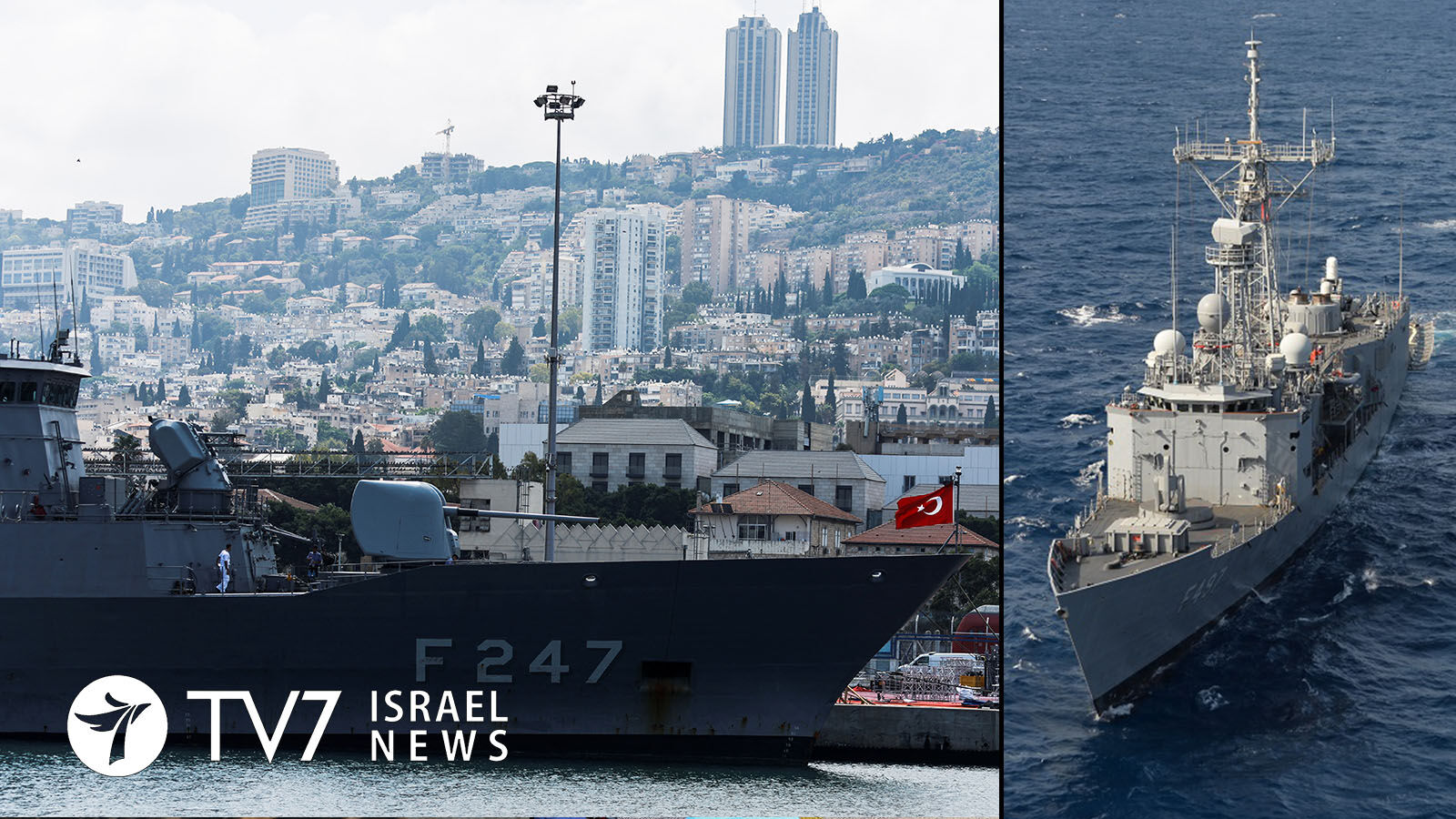The Kemal Reis (F-247) Barbaros-class frigate sailed to the coastal city of Haifa on Saturday as part of NATO maneuvers in the Mediterranean Sea.
By Erin Viner
The visit is the first of its kind by a Turkish naval vessel since restoration of full diplomatic relations with Israel last month after more than a decade of tensions.
The crew were also permitted to disembark on shore leave.
Onetime warm bilateral ties between the Jewish State and its strong Muslim ally were severely damaged by the 2010 Mavi Marmara incident in which 10 pro-Palestinian extremists from Turkey were killed when they violently attacked Israeli commandos trying to enforce the naval blockade of the Hamas-run Gaza Strip. Israel later paid Turkey $20 million in compensation as a key component of a deal signed in June 2016 to restore ties.
The row widened again when Turkish President Recep Tayyip Erdoğan condemned Israel as a “terrorist state” after 60 Palestinian rioters believed affiliated with the Islamist-Hamas terror group were killed in 2018 by the IDF during violent protests on the Gaza border against the opening of the United States Embassy in Jerusalem.
Israel has also long condemned Turkish support of the Islamist Hamas rulers of Gaza, including an office operated by the Palestinian terror group in Istanbul. While the two countries are expected re-appoint new ambassadors soon, the Israeli charge d’affaires in Turkey Irit Lillian reiterated late August that “it is no secret that Israel expects Turkey to close this office and send the activists there away.”
The breakthrough restoration of relations between the two US allies followed “positive developments in Israel-Türkiye ties over the past year,” said a statement from the Israeli Prime Minister’s Office (PMO) in August; finalized in a congratulatory conversation Israeli Prime Minister Yair Lapid and Turkish President Erdoğan, as well as “understandings” Lapid reached during his visit to Ankara with Turkish Foreign Minister Mevlut Çavuşoğlu.”
“Upgrading relations will contribute to deepening ties between the two peoples, expanding economic, trade, and cultural ties, and strengthening regional stability,” said the PMO statement.
Israeli President Isaac Herzog also contributed to the de-escalation of hostilities during a diplomatic visit to Ankara in March, after which foreign ministers of both states conducted reciprocal visits. Welcoming the development, Herzog stressed, “Members of all faiths—Muslims, Jews, and Christians—can and must live together in peace.”
“I commend the renewal of full diplomatic relations with Turkey—an important development that we’ve been leading for the past year, which will encourage greater economic relations, mutual tourism, and friendship between the Israeli and Turkish peoples,” said President Herzog in a message on Twitter, emphasizing that, “Good neighborly relations and the spirit of partnership in the Middle East are important for us all.”
Energy is expected to be a key area for potential cooperation.
The move, which comes as Israel has sought to improve ties with regional powers, comes two years after the Abraham Accords’ normalization pacts between the Jewish State and Bahrain, the United Arab Emirates (UAE) and Morocco.
